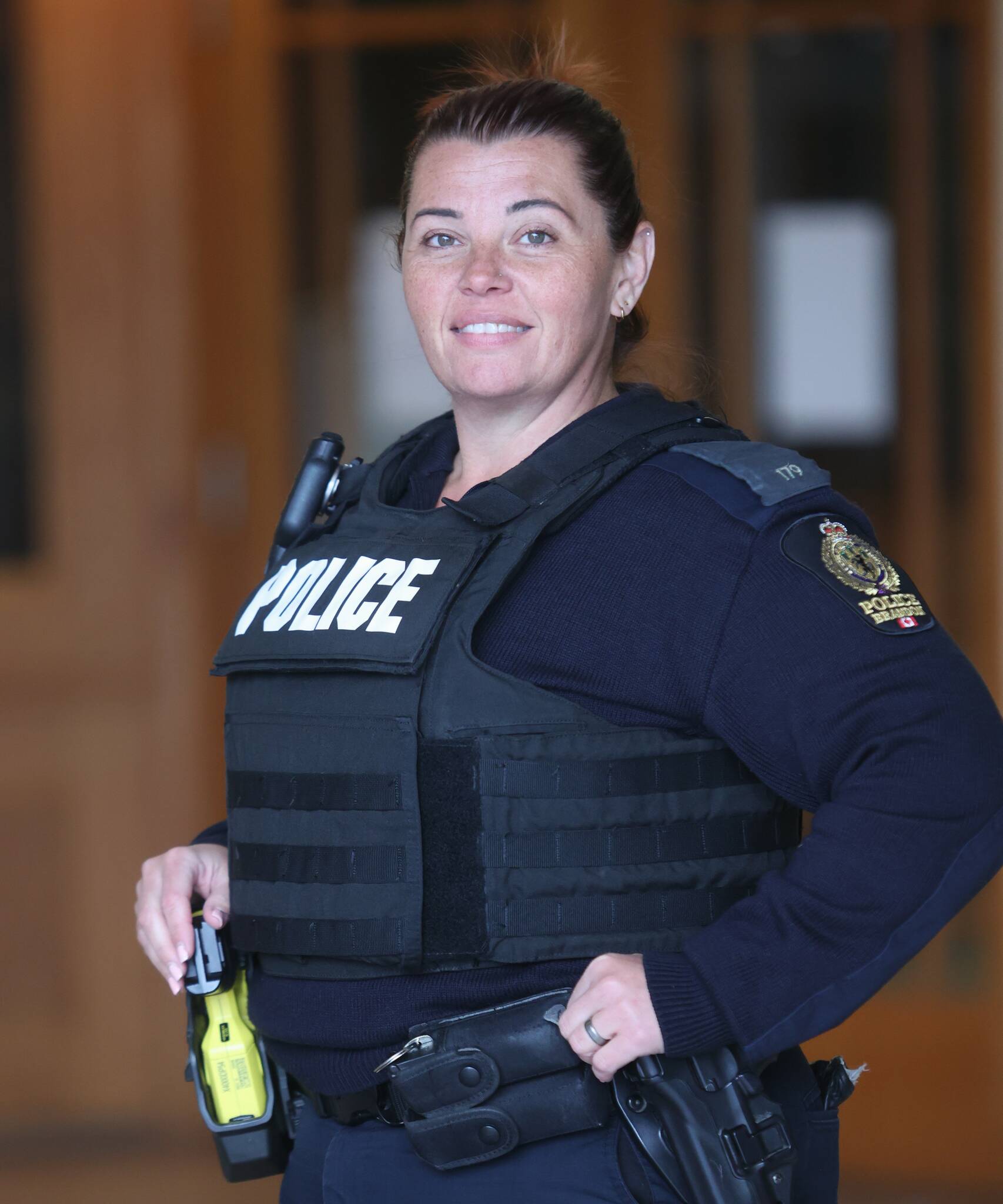Health
Brandon Police Service Defends New Crisis Response Unit Amid Criticism

The Brandon Police Service (BPS) is standing by its recent establishment of a crisis response unit that combines police officers with mental health professionals. This decision has come under scrutiny from two academics who argue that such initiatives lack proven effectiveness. Their criticism was published in an op-ed in the Winnipeg Free Press earlier this month.
In their article, Christopher Schneider and Ania Theuer, affiliated with Brandon University’s Department of Sociology, acknowledged that pairing officers with psychiatric nurses seems like a progressive step. However, they emphasized the absence of concrete evidence supporting the efficacy of crisis response units. They also raised concerns about the unit being embedded in a “police-led framework,” suggesting that it could perpetuate the stigma surrounding mental health crises.
In response to the critiques, BPS Constables Amanda Conway and Cecelia Joss issued a rebuttal letter. They argued that while police officers are not mental health experts, mental health clinicians lack the training required to handle unpredictable and potentially dangerous situations. Their letter highlighted the success of the Winnipeg Police Service’s Alternative Response to Citizens in Crisis (ARCC) program, which has shown improvements in response times and satisfaction rates. According to BPS, the ARCC program resolved 82 percent of its 272 engagements in its inaugural year, successfully keeping 91 percent of clients in the community.
Schneider and Theuer described the Brandon unit as a “feel-good Band-Aid solution to appease the public.” In contrast, Conway and Joss contended that this assessment overlooks evidence of the positive impact these programs can have on the community.
In an interview with the Brandon Sun, Schneider expressed a willingness to engage in constructive dialogue with BPS. He acknowledged the good intentions behind creating the unit but cautioned that “good intentions do not always translate into good results.” Schneider criticized the perception presented by Conway and Joss that individuals with mental illness pose extreme dangers, citing studies in the Journal of Criminology that challenge this view.
He further remarked on the inconsistency of expecting police officers to assist in contexts outside their expertise, such as surgery or culinary tasks. “To suggest that mobile crisis units are paired with police and this is somewhat different is to perpetuate stigma and criminalization,” he stated.
Theuer, who has over a decade of experience working with crisis response units in Ontario, expressed disappointment over the focus on police involvement. “It’s deflating to see what’s needed, which is community mental health care,” she said. She emphasized her commitment to advocating for improved mental health resources.
Brandon Police Chief Tyler Bates defended the unit, asserting that the safety of individuals in crisis is paramount. In an email statement, he explained that the range of mental health calls varies significantly, with some encounters being peaceful while others can be volatile and involve weapons or drug-induced psychosis. Bates stated, “The threat of harm to participants in this process is real, and it would be irresponsible to not have a preparedness and response capacity for the full continuum of potential scenarios.”
The ongoing debate reflects broader discussions about the role of police in mental health crises and the need for effective, evidence-based solutions to support those in distress. As BPS moves forward with its crisis response unit, the conversation surrounding its implementation will likely continue to evolve.
-

 Education3 months ago
Education3 months agoBrandon University’s Failed $5 Million Project Sparks Oversight Review
-

 Science4 months ago
Science4 months agoMicrosoft Confirms U.S. Law Overrules Canadian Data Sovereignty
-

 Lifestyle3 months ago
Lifestyle3 months agoWinnipeg Celebrates Culinary Creativity During Le Burger Week 2025
-

 Health4 months ago
Health4 months agoMontreal’s Groupe Marcelle Leads Canadian Cosmetic Industry Growth
-

 Science4 months ago
Science4 months agoTech Innovator Amandipp Singh Transforms Hiring for Disabled
-

 Technology3 months ago
Technology3 months agoDragon Ball: Sparking! Zero Launching on Switch and Switch 2 This November
-

 Education3 months ago
Education3 months agoRed River College Launches New Programs to Address Industry Needs
-

 Technology4 months ago
Technology4 months agoGoogle Pixel 10 Pro Fold Specs Unveiled Ahead of Launch
-

 Business3 months ago
Business3 months agoRocket Lab Reports Strong Q2 2025 Revenue Growth and Future Plans
-

 Technology2 months ago
Technology2 months agoDiscord Faces Serious Security Breach Affecting Millions
-

 Education3 months ago
Education3 months agoAlberta Teachers’ Strike: Potential Impacts on Students and Families
-

 Science3 months ago
Science3 months agoChina’s Wukong Spacesuit Sets New Standard for AI in Space
-

 Education3 months ago
Education3 months agoNew SĆIȺNEW̱ SṮEȽIṮḴEȽ Elementary Opens in Langford for 2025/2026 Year
-

 Technology4 months ago
Technology4 months agoWorld of Warcraft Players Buzz Over 19-Quest Bee Challenge
-

 Business4 months ago
Business4 months agoNew Estimates Reveal ChatGPT-5 Energy Use Could Soar
-

 Business3 months ago
Business3 months agoDawson City Residents Rally Around Buy Canadian Movement
-

 Technology2 months ago
Technology2 months agoHuawei MatePad 12X Redefines Tablet Experience for Professionals
-

 Business3 months ago
Business3 months agoBNA Brewing to Open New Bowling Alley in Downtown Penticton
-

 Technology4 months ago
Technology4 months agoFuture Entertainment Launches DDoD with Gameplay Trailer Showcase
-

 Technology4 months ago
Technology4 months agoGlobal Launch of Ragnarok M: Classic Set for September 3, 2025
-

 Technology4 months ago
Technology4 months agoInnovative 140W GaN Travel Adapter Combines Power and Convenience
-

 Science4 months ago
Science4 months agoXi Labs Innovates with New AI Operating System Set for 2025 Launch
-

 Top Stories2 months ago
Top Stories2 months agoBlue Jays Shift José Berríos to Bullpen Ahead of Playoffs
-

 Technology4 months ago
Technology4 months agoNew IDR01 Smart Ring Offers Advanced Sports Tracking for $169










